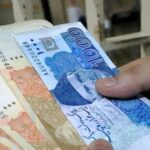Election Commission of Pakistan (ECP) believes that if candidates’ emblems are modified after signs have already been assigned to them, general polls may be postponed longer.
Pakistan’s general elections have already seen several months of delays, and some political figures are calling for more, claiming a variety of excuses. But the Supreme Court has ordered officials to make sure that elections be held on February 8.
Following the election symbols’ distribution, political players are “having them changed through various forums,” according to a statement from the polling authority.
According to the statement, “it should be noted that the election commission has ordered the printing of ballot papers to the three printing corporations and the printing work has started after the allocation of the election symbols.”
The announcement was made hours after sources informed Geo News that the election commission may decide to postpone voting in some constituencies in the event that high courts permit independent candidates to alter their electoral insignia.
The sources added that when the matter of appeals before high courts demanding changes in symbols was brought up at a conference presided over by Chief Election Commissioner (CEC) Sikandar Sultan Raja, it was suggested that the dates be changed for specific constituencies.
The official version quoted the ECP as saying: “If the process of modifying the election symbols continues, then there is a concern of a delay in the election due to the need to reprint the ballot papers, which will take time.
The ECP emphasized the waste of paper, which is imported and that Pakistan is already experiencing a severe balance of payments crisis. It was stated that 800 tonnes of paper were used to print ballots for the 2018 elections, whereas 2,070 tons of paper are anticipated to be used for the 2024 elections.
In a similar vein, 18,059 candidates are running in the upcoming elections, compared to 11,700 who ran in the 2018 contest. 260 million ballots are being printed this time around, up to 220 million in 2018.
The election commission is meeting in this respect to discuss how to handle the current circumstance and guarantee that the commission’s repeated directives not to alter electoral symbols are carried out.
The statement said, “A proposal is also being considered that there will be no other option but to postpone the elections in such constituencies if this process of changing election symbols does not stop.”
The action follows a lawsuit filed by Pakistan Tehreek-e-Insaf (PTI) leaders in the Peshawar High Court (PHC) challenging the election commission’s awarding of their insignia on the grounds that it was illegal.
The PTI leaders, Shehryar Afridi, Asif Khan, Kamran Bangash, and Aftab Alam, who are running as independent candidates after their party lost the “bat” symbol, filed petitions with the high court, but their requests were denied.
The ECP issues distinct graphic identifiers, or electoral emblems, to political parties and candidates.Parties typically have enduring symbols. The PTI chose to use the cricket bat as a nod to Imran Khan, the party’s founder and a renowned former national cricket team captain.
Voters can stamp the symbols on voting papers to indicate which one they prefer. There are names on the ballot paper as well, but since more than 40% of Pakistan’s 241 million people lack literacy, the images are even more crucial for identification.
Based on the economic study conducted in 2022–2023, the majority of Pakistan’s constituency resides in rural areas with a literacy rate of approximately 50%.
Thousands of candidates, as well as several political parties and symbols, are involved in Pakistan’s election process. A single ballot paper offers voters a wide range of choices.







